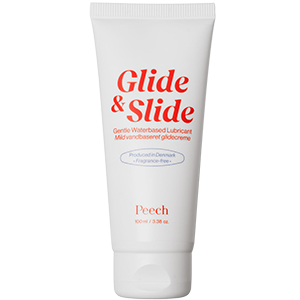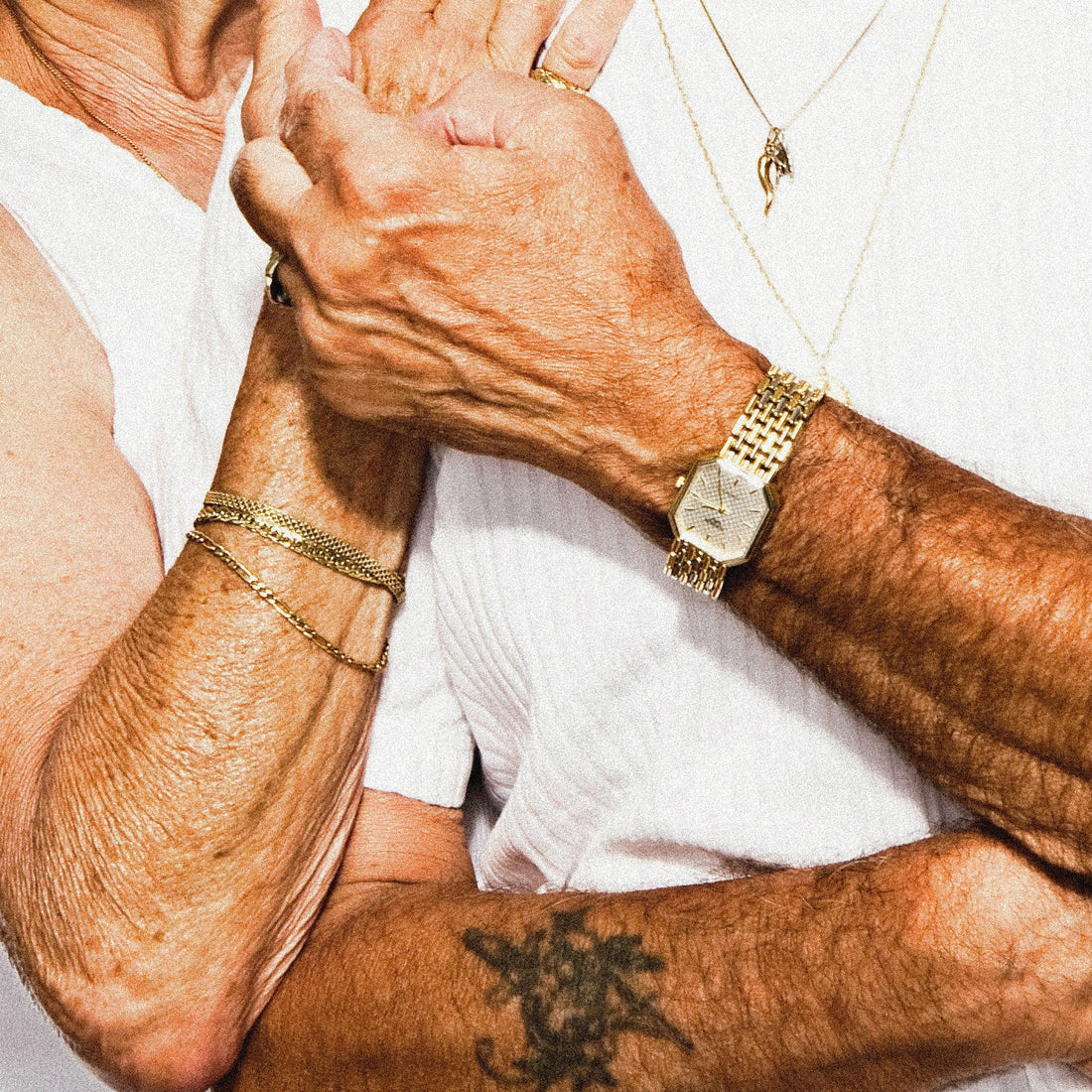Sex and togetherness when you get older
Sexuality is an important part of life - your whole life. But when you age your body changes, and that can affect how you experience sex with others and yourself. In this article you can read about some of the changes, people experience with age.
Do older people have sex?
It is a widespread prejudice that older people don't have sex. But sex and sexuality is an individual experience and a need that doesn't just (necessarily) disappear because you get older. So yes, older people have sex too.
Having said that, with age, changes can occur in the body that affect how you experience sex. Maybe illness has changed the way you experience your body and your mobility. For others, it can mean dryness in the vagina, erectile dysfunction or a reduced sex drive. These things are not necessarily challenges, but can be experienced as problems for some. It's a good idea to talk to a health professional if you experience it as a problem - especially so you can be met with a professional acknowledgment that your sexuality is important to you and your well-being. However, many find it too uncomfortable talking about sexuality and sexual challenges with a doctor. If you experience the above conditions, we have collected some advice on what you can do yourself.
Vaginal dryness
Vaginal dryness is a condition that people with vulvas of all ages can experience. After menopause however, up to half of people with a vulva experience problems getting wet. It can feel like dryness, irritation, itching, as well as spotting after sex. Dryness in the vagina after menopause can be due to the body producing much less estrogen, which partly helps keeping the vagina moist and flexible. It is therefore completely natural, but, but, but, sex should never hurt! There are several things you can try if you experience dryness and pain. As the decreased estrogen production is often the cause of vaginal dryness after menopause, estrogen therapy can help. Here you must consult your doctor or gynecologist.
However, the quickest and easiest solution to dryness is lube, which provides instant lubrication. Lube adds moisture and makes sex more enjoyable - this applies to all ages!
Some also find that regular kegel exercises can help stimulate blood circulation. This can strengthen the mucous membranes in the vagina and thus relieve dryness. Here you can try classic kegel balls or the innovative pelvic floor trainer, Empelvic. Empelvic is a special pillow that you sit on, which then helps you tense up and relax properly.
Erectile dysfunction
People with penises of all ages may experience problems getting or maintaining an erection. It can be due to psychological factors, such as stress or depression, or physical factors, such as being overweight and smoking.
With age, however, more and more people with a penis experience erectile dysfunction, partly because the amount of the hormone testosterone decreases. Erectile dysfunction can also be the first sign of diseases such as high blood pressure or arteriosclerosis, which especially develops with age. If you have not previously experienced erectile dysfunction, it is therefore important that you consult your doctor first.
There are several things you can try yourself if the erectile dysfunction is not caused by an underlying physical problems. Regular exercise, a good diet, no smoking and pelvic floor exercises help for many. Because yes, pelvic floor training can actually also be done by people with a penis. The Empelvic pillow also comes in a shape made for people with a penis, so you can train easily and quickly.
Decreased sex drive
Sexual desire can change throughout life, and can fluctuate a lot during some periods, which can be linked to stress, illness or certain medications. It's completely natural to experience a decreased sex drive regardless of age, and it is not necessarily a negative thing. It's also debatable whether sex drive decreases just because you get older. It is possible that physical challenges slow down the spontaneous desire for sex, just as dryness or erectile dysfunction can impact the sex drive. A drop in the level of hormones in the body after menopause can possibly have an effect, but at the same time there is nothing to suggest that you get an increased sex drive by, for example, receiving hormone treatment with estrogen.
So the important thing is to consider whether your desire has changed because you experience sex negatively. Sex should never hurt and should be something that brings you pleasure, rather than shame, sadness or anger. You can read more about reduced sex drive and causes in our article here.
Other ways of being together
Maybe your body has changed in a way where sex like you used to isn't possible. However, that doesn't mean you can't still have sex - sex can look many different ways, and doesn't necessarily involve penetration. If you have a partner(s), you can experiment with your mouth or hands. Kissing, hugging and touching still feels lovely, even if you may not have the same mobility. Here it can also be a great advantage to include sex toys which can provide effective stimulation without straining the hands. Here, a small bullet vibrator can be a great place to start, as it can be used in many different places on all kinds of bodies.
For many, the simple physical presence of another without anything sexual can also be quite sufficient. If you have a partner(s), you can try just spooning for 15 minutes every day, or give each other a nice, gentle massage. Just feeling each other makes a lot of difference.
If you want a little introduction to sex toys you can use alone or with partners, you can also read our guide here.
You can also read more about pelvic floor training in our guide here.
If you're looking for inspiration for partner massage, read our guide for advice and ideas to get you started.
Sources:
https://www.sundhed.dk/borger/patienthaandbogen/kvindesygdomme/sygdomme/seksuelle-tema/seksuelle-problemer-i-overgangsalderen/
https://www.sundhed.dk/borger/patienthaandbogen/maend/sygdomme/seksuelle-problemer/rejsningsproblemer-impotens/





